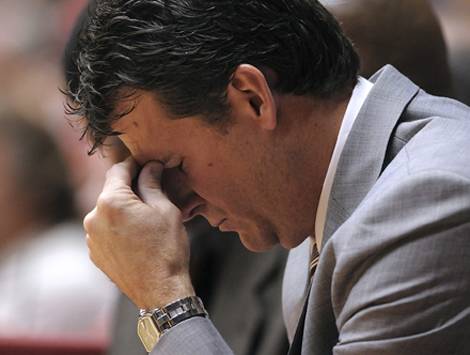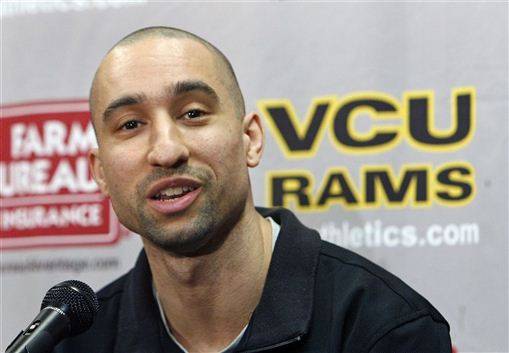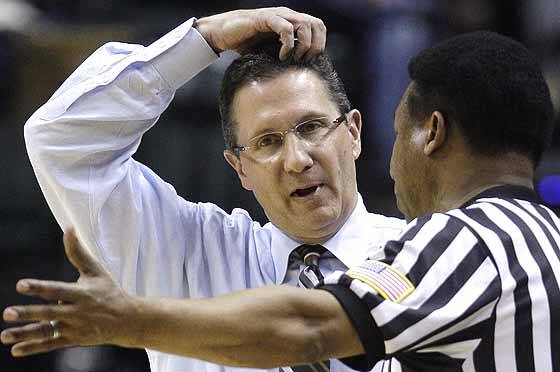It’s an exciting time for Illini basketball, what with the recent jettisoning of a frustratingly inflexible coach, and the possible hiring of a replacement who hasn’t yet let anyone down. My apologies if this type of post has already made the rounds on message boards.
Let’s begin by comparing the careers of a couple of former Big Ten coaches.
Coach A: 210–101 overall, 89–65 Big Ten (9 seasons, 6 NCAA bids). In program’s previous 13 seasons before Coach A’s arrival: 266–146 overall, 129–93 Big Ten, 9 NCAA bids.
Coach B: 152–106 overall, 61–67 Big Ten (8 seasons, 3 NCAA bids). In program’s previous 13 seasons before Coach B’s arrival: 269–140 overall, 125–105 Big Ten, 9 NCAA bids.
The programs had very similar medium-to-long-term track records before their respective coaches arrived. Coach A walked into a more daunting position, as his school had shared the Big Ten title two out of the previous three seasons, but he made up for it by winning the conference title outright in his first two years at the helm. Coach B, on the other hand, took five seasons before his squad produced its first winning conference record, and peaked with a second-place conference finish.
Coach A had a better record across the board, doubling Coach B’s number of NCAA appearances in only one more season, and consistently advancing further in the tournament. Both coaches had reputations for running clean programs, although each encountered some incidents of bad behavior by players. That happened earlier in Coach A’s tenure, and later in Coach B’s.
Chances are, you’ve already guessed who Coach A is:

Coach B has been out of the Big Ten picture a little longer:

Steve Alford, former Iowa coach.
Bruce Weber came to Illinois after longtime success as a Purdue assistant, as well as five years of steady improvement of the Southern Illinois program. Alford wore out his welcome in Iowa City over time, but he had a stellar reputation upon his arrival, after very successful stops at D-III Manchester (Ind.) and Southwest Missouri State.
Now, let’s play this game again. This time, we’re looking at two up-and-coming coaches of mid-major programs who were able to parlay success in the NCAA tournament into becoming hot commodities.
Coach A: 84–27 overall (.756 winning pct), 38–16 conference (3 seasons, 0 regular-season conference titles, 2 NCAA berths (one Final Four appearance))
Coach B: 131–61 overall (.682 winning pct), 65–31 conference (6 seasons, 3 regular-season conference titles, 2 NCAA berths (both in the Sweet 16)). Coach B was 69–26 (.726) with two regular-seson conference titles and an NCAA Sweet 16 berth in his first three seasons.
Coach A would have an edge, but it’s close. Coach B came from a stronger conference and had a more consistent track record of regular-season success, but Coach A’s teams have always seemed to peak at the right time. Clearly, though, they both achieved enviable success in a short period of time as head coaches.
Coach A: Shaka Smart

Coach B: Todd Lickliter

Smart, of course, is the coach at Virginia Commonwealth and the odds-on favorite to become the next coach of the University of Illinois.
Lickliter left Butler in 2007 and went on to lead Iowa to a 38–57 record in three seasons. He was run out of town after finishing 8th, 10th, and 9th in the Big Ten, and watched as his replacement at Butler, Brad Stevens, led the Bulldogs to consecutive NCAA title game appearances in 2010 and 2011.
None of this is to say that Smart won’t be a fine coach at the upper echelon of Division I; it’s only a warning that the grass isn’t always greener on the other side of the fence. As maddening as the Bruce Weber era was at times, there’s no guarantee that his replacement will improve the program. In a couple of years, there’s a decent chance that Illini fans will be pining for the good old days of middling conference finishes and close-but-no-cigar disappointments on selection Sunday.
And they’d get plenty of knowing glances from their rivals up the road in Iowa City.








